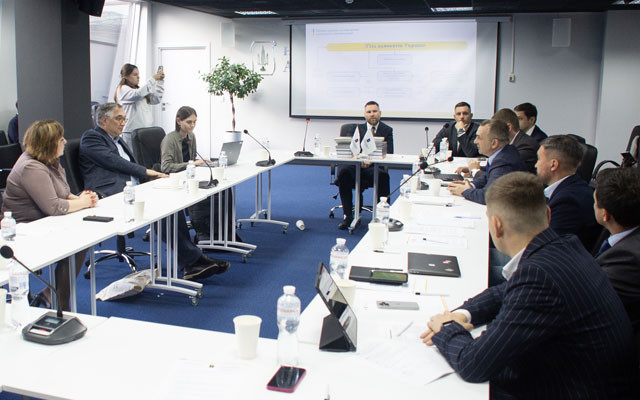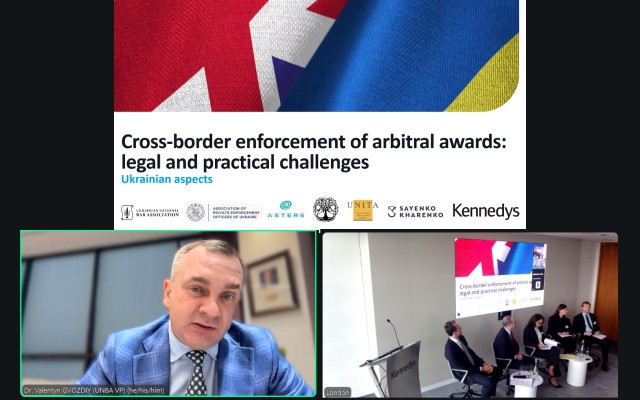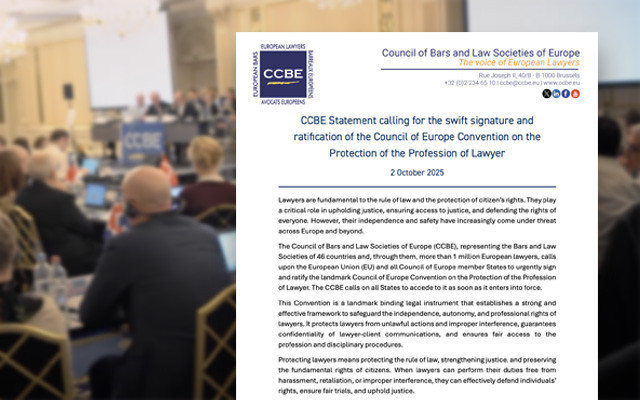Sole judge or panel? Criteria for determining the composition of the court must be specified in the law

When court rules depend not on the law but on human discretion, this creates room for legal uncertainty. The limits of judicial discretion have once again come into focus following the emergence of a legislative initiative that changes the approaches to the activities of judges of the High Anti-Corruption Court.
The UNBA Committee on anti-corruption policy and compliance analyzed draft law No. 14033 of 11.09.2025 «On amendments to the Civil procedure code of Ukraine and the Code of administrative procedure of Ukraine regarding the improvement of the procedure for considering cases by the High Anti-Corruption Court».
Today, in accordance with paragraph 2 of Article 1 of Article 34 of the Civil procedure code, cases concerning the recognition of assets as unfounded and their recovery as state revenue are considered collegially by the High Anti-Corruption Court, composed of three judges. The draft proposes to amend this provision by stipulating that, depending on their complexity, such cases shall be considered by a single judge of the High Anti-Corruption Court or by a panel of three judges.
The UNBA warned that such a structure effectively leaves the decision on the composition of the court to the subjective discretion of a particular judge. This is because the draft does not define any criteria for distinguishing cases according to their complexity. Nor does it provide for procedural mechanisms to determine who, at what stage of the proceedings, and on what grounds should decide whether a case will be heard by a single judge or a panel of judges.
At the same time, the absence of clear legislative guidelines on such issues may reinforce the tendency to expand judicial discretion, which is already observed in the practice of the High Council of Justice and has negative consequences in the form of an imbalance in judicial practice and human rights violations. Examples include the exception that has become the rule of setting bail above the upper limit specified in Article 182 of the CPC, as well as the «discrepancy» in approaches to issuing decisions on the authorization of operational-investigative measures and covert investigative actions.
That is why advocates propose to revise the draft law, providing for the following:
- clear criteria for distinguishing cases according to their complexity;
- a specific distribution of cases depending on their degree of complexity — which of them are subject to a panel of judges and which can be considered by a single judge;
- determination of the stage of court proceedings at which the complexity of the case is decided, and the algorithm of actions to be taken by the judge in case of such circumstances.
These comments and proposals of the UNBA to draft law No. 14033 have been sent to the Verkhovna Rada Committee on legal policy.
Popular news

Interaction
Advocates discussed possible areas of cooperation with the business ombudsman
Protecting the legitimate interests of businesses is a common area of work for advocacy and the Business Ombudsman Council. The former is an independent constitutional institution within the justice system, while the latter is an important element of the mechanism for responding to complaints from entrepreneurs.

Legislation
UNBA supported the draft law on restoring sovereignty
The Ukrainian people alone have the right to form state authorities. Delegating powers to form authorities to persons who are not citizens of Ukraine is contrary to the provisions of the Constitution.

Legislation
Risks to business from virtual asset regulation identified by the UNBA
The current version of the draft law on virtual asset circulation creates an environment that is incompatible with the principles of an innovative economy and the rule of law. In order to prevent the destruction of the crypto sector in Ukraine, it is necessary to systematically review the legislative initiative.

Legislation
Sole judge or panel? Criteria for determining the composition of the court must be specified in the law
When court rules depend not on the law but on human discretion, this creates room for legal uncertainty. The limits of judicial discretion have once again come into focus following the emergence of a legislative initiative that changes the approaches to the activities of judges of the High Anti-Corruption Court.

Abroad
London arbitration talk: jurisdictions, sanctions, assets, immunity
On September 29, experts and practitioners from the UK, Poland, France, USA, UAE and Ukraine gathered in London to discuss the recognition and enforcement of arbitral awards in different jurisdictions, as well as mechanisms for locating and seizing assets.

Legal Aid
A new competition for FLA advocates has begun
A competition has been announced to select advocates who will be involved in providing free secondary legal aid. It will last until December 8, 2025, throughout Ukraine, except for Donetsk, Luhansk regions, and the Autonomous Republic of Crimea.

Guarantees of the practice of law
The CCBE called for the urgent ratification of the Convention on the protection of the profession of advocate
The Council of Bars and Law Societies of Europe (CCBE) has called on all states to sign and ratify the Council of Europe Convention on the protection of the profession of advocate as soon as possible, as the integrity of justice and trust in the rule of law depend on it.

Legal Aid
The Cabinet of Ministers supported the idea of expanding the circle of recipients of FLA
Orphans and children deprived of parental care aged 18 to 23 will be able to receive free secondary legal aid.
Publications

Censor.net Protecting advocates – protecting justice: addressing concerns about the new law

Ihor Kolesnykov A BRIEF SUMMARY REGARDING THE APPLICATION OF THE ORDER ON EXTENDED CONFISCATION IN LATVIA REGARDING FINANCIAL ASSETS OF…

Valentyn Gvozdiy WORKING IN A WAR ZONE

Lydia Izovitova Formula of perfection

Sergiy Vylkov Our judicial system is so built that courts do not trust advocates

Iryna Vasylyk Advocacy in the proclamation of Independence of Ukraine

Oleksandr DULSKY When we cross the border of the Supreme Anti-Corruption Court, we get into another department of the National Anti-Corruption…

Vadym Krasnyk The UNBA will work, and all obstacles and restrictions are only temporary inconveniences
